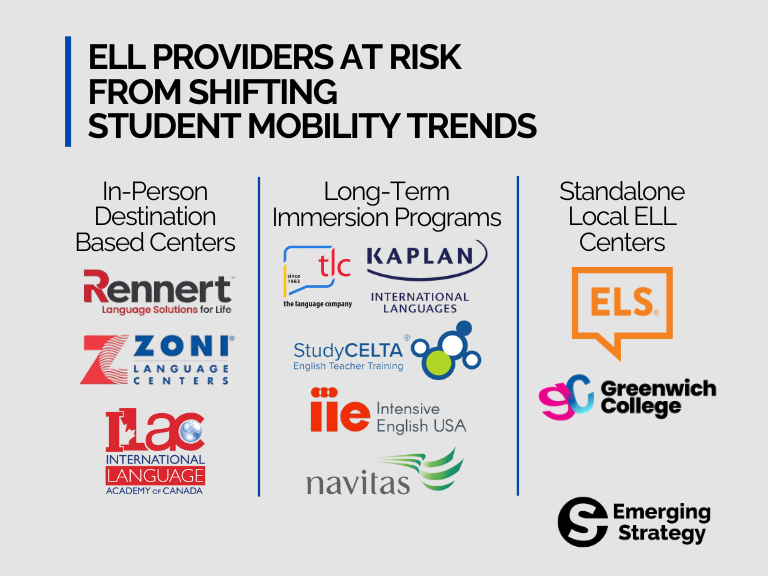Recent shifts in visa and immigration policies in major English-speaking countries—the United States, United Kingdom, Canada, and Australia—are reshaping global student mobility trends and impacting English Language Learning (ELL) providers worldwide. Policy restrictions and rising costs are deterring students from these traditional study destinations, while non-English-speaking countries such as Germany, Malaysia, and the Netherlands are increasingly attracting international students by offering English-taught programs and streamlined visa processes.

This shift in study destinations presents both challenges and opportunities for ELL providers. Traditional, destination-based ELL programs may experience declines in enrollment as fewer students travel abroad for immersive English studies. Conversely, providers that embrace digital and hybrid learning, offer shorter or specialized programs, and partner with universities and corporations in emerging education hubs are positioned to capture new demand.







